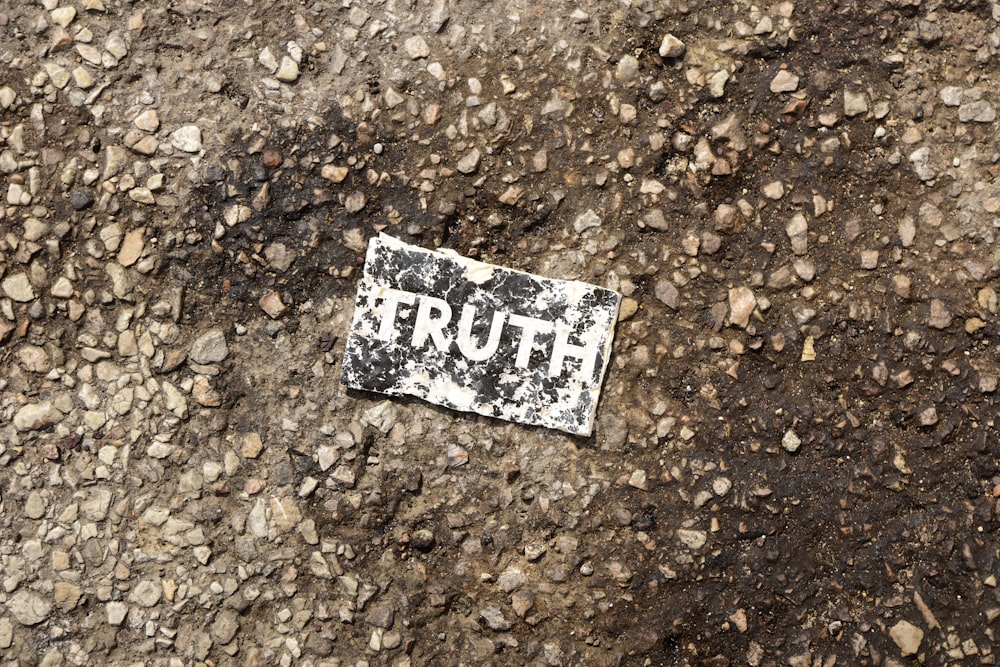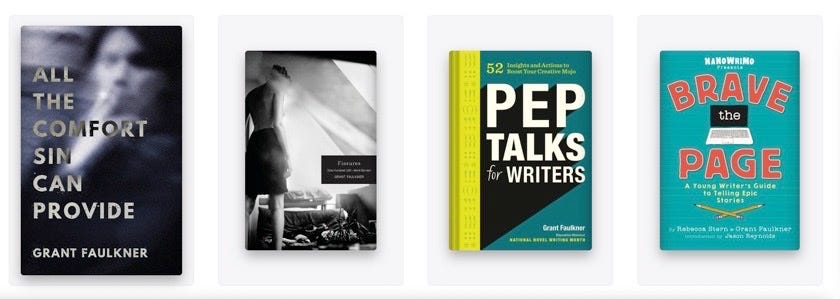Will the truth set us free?
If everyone found a way to speak their truth (an unadulterated, pure truth), I’ve always wondered how that would change the world.
Questions to ask yourself: Do you really live by your truths? Are you brave enough to write them?
In last week’s newsletter, I mentioned how I’d read a profile of the recent winner of the Nobel Prize in Literature, Annie Ernaux, in which she said she wants to reveal the darkest parts of herself with such pitiless accuracy that she will be forced to fall silent once and for all.
It’s as if she has a martyr’s belief in the truth. She’s willing to forsake her very being in order to express her truth. She’s not writing for money or fame or Nobel prizes. She’s writing for truth.
Here’s how Ernaux put it in different books:
“Maybe the true purpose of my life is for my body, my sensations and my thoughts to become writing, in other words, something intelligible and universal, causing my existence to merge into the lives and heads of other people.” (Happening)
“Sometimes I wonder if the purpose of my writing is to find out whether other people have done or felt the same things or, if not, for them to consider experiencing such things as normal. Maybe I would also like them to live out these very emotions in turn, forgetting that they had once read about them somewhere.” (Simple Passion)
That urge toward the truth is what forms the best writing, and I view authors like Ernaux as taking on a sacred responsibility because by writing so truthfully about the darkest regions of the human soul and revealing things that others might deem shameful, they’re risking damnation. They’re risking the worst kind of damnation: ostracization.
I’m meditating on the nature of writing the truth because it’s the time of year when we can conceive of our lives as having a new start. We often think of the measurable goals we can make—miles jogged, pages written, pounds lost, etc.—but how to measure truths told and lived by?
“Good writing is about telling the truth. We are a species that wants and needs to know who we are,” said Anne Lamott.
I believe that’s the power of art—to speak a truth that others are afraid to say in a way that illuminates the truth beyond words. That knowledge of who we are, the knowledge of all of our weaknesses and flaws and desires and horrors and hungers, will actually bring us together. Together with ourselves, together with others.
So much of life is lived based on hiding the truth. Or half-speaking it. Who wants to live in a half-truth? Even though many truths can be uncomfortable and challenging, I think those truths are nourishing in the end.
Ernaux makes me think about the single most uttered writing maxim: “Write what you know.”
I was compelled and repelled and confused by the phrase for years as a young writer. It's led people astray—to stop writing because they deem their lives as not dramatic enough to write about. But it doesn't matter whether you've fought in wars, fought off addiction, or fought for funding at a PTA meeting. "Write what you know" means writing your truth. Write it in fantasy novels and haiku; write it in thrillers and manifestos. Your truth is, in the end, what will make your writing interesting.
“The truth will set you free” has become such a popular phrase that I didn’t know who originally said it, but Jesus actually first uttered those words (in John 8:32).
It’s really a question. How will the truth set you free? How can you know your truth? How can you express it?
That’s a pretty good goal for all of us in 2023.
Because a quote or two
“Don't bend; don't water it down; don't try to make it logical; don't edit your own soul according to the fashion. Rather, follow your most intense obsessions mercilessly.”
― Franz Kafka
“I feel some need to represent where I'm from. But ultimately, I think my only real responsibility is to—as much as possible—interrogate my own truths. This is to say not merely writing what I think is true, but using the writing to turn that alleged truth over and over, to stress-test it, in the aim of producing something readable.”
― Ta-Nehisi Coates
Because I’d love you to read one of my books
I write this newsletter for many reasons, but mainly just for the joy of being read and having conversations with readers. This newsletter is free, and I want it to always be free, so the best way to support my work is to buy my books or hire me to speak.
Because more about me
I am the executive director of National Novel Writing Month, the co-founder of 100 Word Story, and an Executive Producer of the upcoming TV show America’s Next Great Author. I am the author of a bunch of books and the co-host of the podcast Write-minded.
My essays on creative writing have appeared in The New York Times, Poets & Writers, Lit Hub, Writer’s Digest, and The Writer.
For more, go to grantfaulkner.com, or follow me on Twitter or Instagram.





Well, you picked off a big one here. And yes, writing my truth, about what happened to me as a father, losing all three of my sons for ten years to substances, and then recuperating the family I once had, brought incredible insights to me--insights that had eluded me for years. I learned where I'd blown it. I learned when everything went to hell and then how it cascaded from there. And my learning, my lessons, the wisdom we all gained, is making all of us better fathers and better husbands and better men. All of us, all four of us, are all better because I wrote and then rewrote and over a hundred iterations, mined the past and my psyche, until what surfaced was actually the truth. Thanks for weekly telling yours.
Thanks for writing and sharing this Grant. Very poignant thoughts for starting off a new year. I came across a quote by Sylvia Boorstein, the Buddhist teacher, during 2022, that I've gone back to over and over, both when life feels satisfying and full, and when it's challenging, confusing, painful and scary: "The whole world is a lesson in what's true."